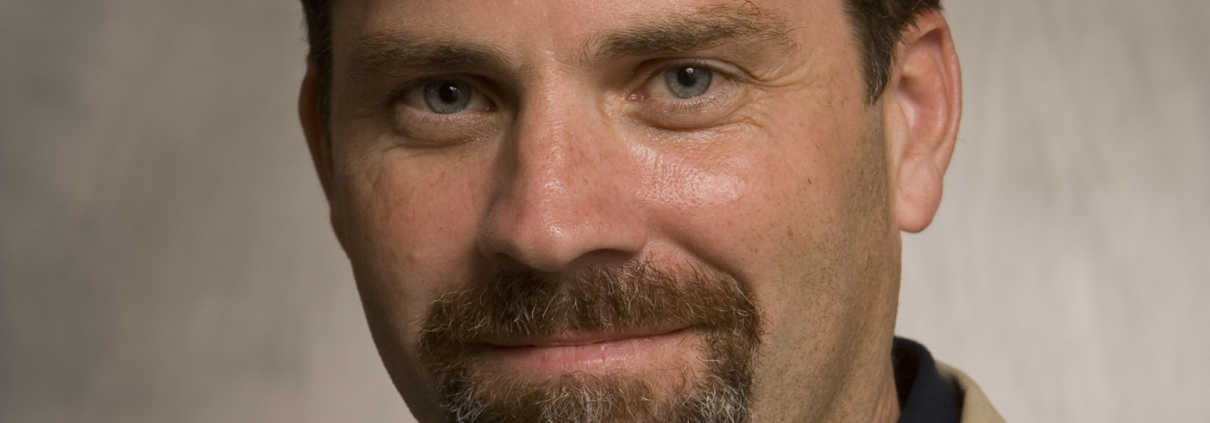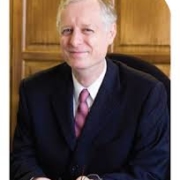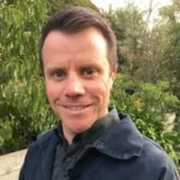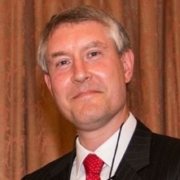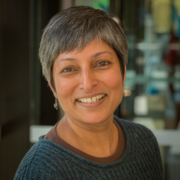This episode of FreshEd is brought to you by the Comparative and International Education Society.
The CIES 2017 Symposium aims to explore new frontiers in Comparative Education. Today, I speak with Peter Demerath about some of the exciting work being done in ethnographic research. We discuss many ideas from indigenous knowledge to grounded grit. Peter even talks about the challenges researching the same community for over two decades, as well as the value such studies can have.
Peter Demerath is an Associate Professor in the Department of Organizational Leadership, Policy and Development, and an affiliated faculty member in the Department of Anthropology at the University of Minnesota. A former middle school social studies teacher, Peter has conducted ethnographic research on schooling, student identity, and academic engagement in Papua New Guinea and in the suburban and urban United States. He is currently President-elect of the American Anthropological Association’s Council on Anthropology and Education.
Citation: Demerath, Peter, interview with Will Brehm, FreshEd, 91, podcast audio, October 16, 2017. https://www.freshedpodcast.com/peterdemerath/
Transcript, Translation, and Resources:
Will Brehm 2:26
Peter Demerath, welcome to FreshEd.
Peter Demerath 2:29
Thanks, Will. Great to be here with you.
Will Brehm 2:31
So when you look at the field of comparative education, what are some of the new frontiers that excite you?
Peter Demerath 2:39
For me, the most exciting new frontiers are related to local and indigenous knowledge and ways that comparative education as a field is encompassing and including local and indigenous perspectives. And local and indigenous conceptions of education and what education is for. Because if you look at the history of comparative education, in some ways, the field really has been about the spread of mass Western style education and all that comes with that. And there’s a lot that comes with that. But I think that what we’re seeing more and more of, that is energizing the field, are examples of local and indigenous knowledge and research and researchers that are so important in terms of countering many of these taken-for-granted assumptions that have driven schooling and mass education for decades.
Will Brehm 3:54
So what would be an example of a taken-for-granted assumption that is being challenged or revealed by some local and indigenous knowledge in comparative education?
Peter Demerath 4:05
So for example, the dominance of content area preparation and teacher preparation. If you look at so many teacher education programs globally, it still is often content knowledge preparation that predominates. And of course, that’s important, right? I mean, I had a teacher that told me just a year ago when I was doing a study that she believed that English and literature could save young people’s lives. And I thought that was an amazing thing to say. And I think that all teachers should believe that their content area knowledge can make a difference and can save young people’s lives. But what we’re learning more and more of is the importance of a more relational view to educational processes. And that teachers, what they really need, in addition to content knowledge is relational expertise. And so for example, some of the exciting work that I’ve been looking at recently comes out of New Zealand. And so Russell Bishop, his work on the importance of establishing Maori family-like relationships in school, and making schools then more welcoming to all students, and that work has traveled even to Western Canada, to First Nations areas. And so that more relational view of education grounded in indigenous and local perspectives, I think, can be a very powerful and important counterpoint to some of those taken-for-granted assumptions that have driven mass education for quite a long time.
Will Brehm 5:46
And what do you mean by a relational view? Could you just give me a little bit more detail? You know, for someone who doesn’t necessarily know what that means?
Peter Demerath 5:53
Yes, we know that there are all kinds of other factors that affect students’ engagement and achievement in school. And sometimes these are referred to as “non-cognitive factors” or “character skills”. And a big one, for example, is school and classroom belonging. And so what then is the role of the teacher in terms of helping all students to feel like they belong in class, they’re comfortable in class? And so then it’s important for teachers to be able to establish honest and trustworthy relationships with students, and a lot of that has to do with how they show up in class. And what someone like Zaretta Hammond refers to as their “stance”, because students are smart; they’re in the first several minutes of any classroom encounter, the beginning of the school year, figuring out how much they can trust that teacher, and how much that teacher is going to be curious about them, how much they care about them, how much of an investment that teacher is going to make with their own emotional labor in that relationship. And so they’re are all kinds of levels, I think, to the teacher, the process of teachers, establishing effective relationships with young people.
Will Brehm 7:07
It’s very interesting to think about how indigenous knowledge and local knowledge can be used, and inform and drive the future directions of comparative education. And so I wanted to ask you: How, as a researcher, do you overcome – and I’m going to take a guess here that you were educated in maybe the dominant forms of knowledge, not necessarily the indigenous knowledge – so how do you overcome your own history to embrace this indigenous knowledge and this local approaches to research?
Peter Demerath 7:46
There’s a lot to overcome, I think in terms of as a comparative education researcher, as an ethnographer. There’s a lot to overcome in being able to effectively support indigenous knowledge, indigenous researchers, because of the history of our fields. So a lot of it has to do with listening. A lot of it has to do with a more humble situated approach to knowledge production. It also has to do with, at times, getting out of the way, so that other voices can be heard. And even using my own position as a person, as a researcher, that’s been a little around for a little while, being aware of my own positionality to support other perspectives that are so vital and so important in our field.
Will Brehm 8:43
Is that ever challenging?
Peter Demerath 8:44
Oh, it’s challenging a lot. But I think it when it is challenging, I think that that’s a signal that you’re on the right path. I believe in the conflation of comfort and power. And I believe that one of the reasons why change can be so slow to come is because people with power are unwilling to be uncomfortable; they are unwilling to embrace discomfort. And so I think this is one of the reasons why change can be slow, and it’s one of the reasons also to be aware of these other dimensions of our own decision making. And one of the things that I’ve been learning more and more about is the newer research in sociology and anthropology of emotion and the role of emotion in decision making. And so I think that comfort and discomfort are actually pretty important to be aware of as researchers, and they’re not terms that you would typically hear researchers use. But if we’re really going to go deep and be expansive, in terms of the kinds of perspectives that we want to learn about, and be open to and to support in terms of enriching our understandings of education processes globally, that’s where I think we need to go, in part.
Will Brehm 10:10
Do you have a memory, or can you describe a moment where you felt discomfort in your role?
Peter Demerath 10:16
So for example, with my own journey here, I’ve been doing research and development work in the same village in Papua New Guinea for over 20 years now, but I’m finding that I still make big mistakes. I still encounter things that I think I understand but I don’t understand. And I think there’s something that as a researcher, understanding something, there’s a kind of hubris, almost an arrogance, when we think that we actually understand something. And so more recently, my wife, my partner, and I, we’ve been working with a Community Council back in Pere village to rebuild the Margaret Mead Community Center in the village. And it involved working with the local Community Council as well as what they refer to as the Council of Chiefs. And I found that I thought I had pretty good relationships with a lot of those people, but I found over time that I did not fully understand all of the local dynamics that play, that were going to shape how the project would actually go. And the process, especially the political process, of ensuring that everyone involved was respected, and that everyone involved had a say, like they think they ought to have a say. And there can be for me, even if you have Papua New Guinea as a sovereign state, etc, etc. But there’s still dimensions of the local worlds of meanings that I am still scratching the surface of as an anthropologist. And so it means that I need to be humble, but it also means that what helps, I think a lot, is the long term engagement with people and being able to draw on our history and our friendships that have evolved over time. And I think that has helped quite a bit.
Will Brehm 12:27
So in this sense, this long term engagement … I’ve spoke with some researchers like Jane Kenway, who draws on the work of Marcus. And to do these multi-sited ethnographies, but Jane Kenway is pushing the notion that the deep engagement in one site is not necessarily needed in ethnography, or there’s other ways of thinking about it. But it sounds like what you’re saying is that there is this need for a very deep engagement to really understand these local ways of meaning making, and also the local politics.
Peter Demerath 13:11
As an ethnographer, I believe that I constantly need to be able to make the case for why ethnographic knowledge is important and vital, to both understand educational processes and guide educational policy and practice. There are a lot of different reasons for this. One is – going back to one of the objectives of the symposium, the themes of the symposium – is to contribute to the decolonization of education and comparative education research. And one of the keys there, I think, is that ethnography brings, is uncovering and helping bring voice to local adaptation – local adaptation to social change. And one of the pieces that still sticks with me, it came out several years ago. Paul Willis wrote it. He said, “Look, as change occurs, people adapt to change in unprefigurable ways.” Which means that the only way to understand how people are responding to change is to spend time in a setting, and ask questions and get to know people. And that way, you can begin to understand local innovation and creativity. And so what that means is that you can’t possibly know what variables are salient before you start out. And so it’s also the rationale for a grounded survey. In any kind of case study research, the strength of a grounded survey is you spend time, and locally salient factors and variables begin to present themselves, and then you can get at representativeness and do some statistics. And so that’s one thing. Another thing, though, is the importance of ethnography in, as I was saying, capturing local creativity, especially when it comes to educational practices. And ethnography can capture and help to document the creative and innovative efforts of teachers. And I’m a person that believes that education in many societies still is run in a highly top down manner, in a very directive manner. And certainly in the United States, this can have a corrosive effect on teachers and teacher morale and teacher motivation. And so that’s one of the reasons why more recently, as I’ve been writing, I usually mention Fred Erickson’s call to conduct scaled down research. We’ve heard about scaling up research, but scaled down research refers to research which seeks to understand local policy and practice as it unfolds on the ground in every day practice. And so that’s very, very important. And I think it’s a counterpoint to other kinds of research that predominate. Another example is in education research. One of the areas that I’ve been moving into is research on non-cognitive factors that I mentioned earlier, that are part of the equation of student learning and academic success, academic achievement. And a lot of that work in the United States has been conducted in the field of social psychology. And so the methods have been experiment, they’ve been short term interventions. What I’m curious about is understanding, for example, how students can acquire components of say, academic mindsets, things like classroom and school belonging, future orientation, resilience, grit, perseverance, confidence. How students can develop these non-cognitive factors, in part through the creative and innovative efforts of teachers and staff members. And so that’s the work I’ve been doing more recently. And one of the things I’ve learned is that these teachers and staff members can have a very strong effect on young people’s lives. And we’re talking about high school students here. And so it just shows how malleable young people can be even through the high school years, and the secondary school years. And so what I’m trying to do there is provide a counter, through ethnography, to many of the research traditions and research approaches that are continuing to predominate. There’s been a lot of attention the United States recently to “grit”, or resilience. And so I’m calling this part of the project “The Grounded Grit Project”, grounded grit referring to grit that is grounded in everyday practices, and in part has grown through the everyday practices and motivations of teachers. I should say, I’m aware when I’m speaking with a more comparative international audience, I did have a colleague here in Minnesota, when I told her that I was thinking about calling it The Grounded Grit Project, she said, “Peter, no, no, no, no, no, don’t do that.” I was thinking about sending an abstract off to a conference in Europe, and she said, “Don’t do that. They’ll think you’re talking about a dirty carpet.”
Will Brehm 18:51
But you decided to stick with the term grounded grit?
Peter Demerath 18:55
If anyone has a better idea, I’m all ears.
Will Brehm 18:58
This idea of grounded grit and this ethnography of looking at teachers and their creativity on the development of students’ resilience, and grit – have you been able to uncover findings that actually say, challenge some of the work of, I would imagine it’s Heckman, who’s the big one on grit? But have you found things that other researchers who are using, say social psychology and these experimentation methods, have you uncovered new ideas, new knowledge that before this was not known using the other methods?
Peter Demerath 19:37
Yes, that’s what I’m in the process of writing up right now.
Will Brehm 19:40
Can you give us any hints?
Peter Demerath 19:43
Oh, sure, I think that one of the key things here, in the whole process – because I’m trying to develop a model, a process model of how young people acquire these different non-cognitive factors. And so what I’m learning is that school and classroom belonging comes very early. And so look, all over the world, you and I both know, Will, young people have all kinds of reasons to disengage from school, in part because it’s an inhospitable place. They do not see their own experience in the world reflected back to them in school. And so there are all kinds of reasons for young people to distrust an institution like school. It might represent hegemony in various ways. And so that comes very early, but another thing that has to come early is “sparks”, which refers to student interests and schools finding ways then to support young people in learning something and doing something that they like, and especially where they can see their efforts begin to yield growth and learning and capabilities. And that then can lead to future orientation and future orientation – a lot of people are familiar with this going back to Nurmi’s work – a lot of researchers see future orientation as a “gateway asset”. And all this what I’m learning is it needs to occur in a context where young people believe that the adults see their potential and their capabilities. And so Carol Dweck’s work on ‘growth mindset’ is very important here. She’s a psychologist in the United States who is showing through her research that the more young people see the brain as a muscle that can be developed, the more likely they are to engage with learning and not get frustrated. And that also then is a key part of resilience. And so the school where I did this research, it’s seen as a kind of “beating the odds” school; it serves many students who come from more disadvantaged socioeconomic backgrounds. But it really has a remarkable record in terms of helping these students get on college and career pathways. And a lot of this has to do with the beliefs that the adults there in young people and their capabilities.
Will Brehm 22:07
And so a lot of these findings, you learned by working with teachers. Is that right?
Peter Demerath 22:14
Yes. This was a part of a larger three year study on understanding how schools can develop and sustain improvement-oriented culture. And so I actually started that work out as an evaluator. There are many people in comparative education that also take on roles in evaluation, and I was able to begin to turn that towards understanding school culture and what helps a school like this both develop and sustain improvement efforts. And then the academic mindset, the grit study, was a sub-study there. And so one of the things in ethnography, we want to learn from whomever we can, and whatever we can. So I spent a lot of time in staff meetings. I spent a lot of time in classrooms, and what we call in the United States PLC meetings, professional learning communities, meetings with groups of teachers who get together and try to understand factors that are affecting student achievement, and they plan together a lot of time, even outside of school, going to school events, hanging out with teachers in various places. Towards the end of the study, one of the senior staff members told me, “Peter, one thing that you’re very good at, is just sitting in a room and not saying anything.” Because this is a school where they’re very used to outsiders coming in and telling them what to do, based on very little time, and so I guess as an ethnographer, I try to see that as a compliment.
Will Brehm 23:55
And so this would mean that you’re not actively participating in these PLC meetings. You’re just a fly on the wall observing?
Peter Demerath 24:03
Yes, but I also believe, as an ethnographer, you have to be a person. So I just don’t think it’s possible to go into a classroom and just sit down in the back without having some kind of a membership role in that community. And so I like to say, if I’m going to be in a in a classroom for several weeks, “Could I be a part of your classroom community for a little while?” But another part of this is, I started out doing this work in a more evaluative role and then working through the whole researcher role, which I’m still a part of. But this is a school that also went through some really difficult times in the last year when I was doing data collection. They were struggling to implement a new inclusion policy that was mandated by the district, by the school district. And so that meant that all of a sudden, students who before had been in self-contained classrooms due to their own special needs, also bilingual students, were now all of a sudden pushed into regular classrooms. In the middle of the school year. So it meant for example, in a typical English class, you might have students that are reading from the third grade level all the way up to the 11th grade level in one class. And it made it very difficult for teachers. It was especially frustrating for a lot of these students who didn’t have time to become socialized to the new school environment and so these students began to act out frustrations in hallways. There were all kinds of really, really difficult incidents, including teachers that were assaulted – and we’re talking about both verbally and physically – and it was just a really tough year. And so some of the teachers went to the press in the middle of that year, and there was a story that came out about the school in one of our local papers that was very, very critical of the school and its efforts to deal with this problem. It became known as “the hallway problem” or “the discipline problem”. But the story that came out of the paper did so in a very, what I thought, was a very racialized way. There was a graphic on the cover of a student with dark complexion in a hoodie and some tentacles pointing at the student and one had a gun. And I thought it was just very sensationalized the way the reporter gone about writing the story, and I was concerned because I thought it detracted attention from all the good things that were going on to the school. So for example, the successful efforts of these teachers to help young people get on college and career pathways and acquire components of academic mindsets. And so I decided to publish a counter story in another local paper. And so I didn’t do the longer term analysis that I usually do as an ethnographer; I wanted to get another voice out there. In some ways I was doing this both for the school – for the staff members that I believe in, and I continue to believe in so deeply – but also for future parents, so that future parents wouldn’t lose confidence in this school that I thought had gotten something of an unfair hearing by that reporter in the previous story. So I published kind of a counter narrative, and it came out on the last day of that school year 2015. And I just got a lot of positive response from that, and I think for me, in terms of my kind of journey as an ethnographer and comparative educator, anthropologist of education, that’s probably one of the most important things I’ve ever written. And it was just a fairly short piece.
Will Brehm 27:41
How did you actually navigate that role between being this researcher ethnographer in this school, and yes, trying to be human and having these human interactions with the people you are researching, but then that decision to be much more active in taking a stance and showing your opinion so fully in the press? How did you navigate that terrain? Because I would imagine a lot of researchers struggle with being this objective, partial researcher but then also wanting to take a very political stand.
Peter Demerath 28:20
I think that’s a great question, and that’s, I think, one of the challenges of doing comparative and ethnographic research in the present day, when you’re trying to both be honest about the role of your own positionality – the role of yourself, the role of your own values, the role of your own commitments – and trying to do research that is rigorous, that is seen as authoritative, and can have the impacts on policy and practice that you want to have. And I think that’s a big challenge. And so, I do think that we always need to push to do rigorous work, we need to show the hand of the ethnographer, of the researcher. We need to do work that is transparent, especially when it comes to data analysis and interpretation. But here, what really compelled me to write this other piece was in part, the relationships that I built up with people in the school over time. And I knew, they told me, they were really hurting after this reporter wrote this other piece, and I just felt deep down myself that I wanted to respond to that. More as a person, even, than as a researcher. I talked about my researcher role and the project I’ve been working on, but I did that, I wrote that piece in the way I did to communicate, in some ways out of felt concerns of mine, in addition to concerns as a researcher, and that’s one of things I’ve learned from being a student of public anthropology, and how, as academics, we really can self-censor quite a lot. We can write in very, very highly specialized languages for our colleagues, and sometimes there’s a place for that, but I think there’s also a place to try to write for a broad audience, for impact. And that means forcing yourself – and certainly for me, I still work on this – to just be as clear as you can. And so for me, that’s a continuing challenge.
Will Brehm 30:37
It just must be so exhausting to have to navigate so many different worlds, in a sense. You become so emotionally attached to what you are doing in your research and the people and the relationships that you have, but you have to also navigate all of the ethical issues about doing research, and you then have to navigate your own politics. I can just imagine after doing data collection, you are just absolutely exhausted by the end of the night.
Peter Demerath 31:05
Yes, sure. But also often filled up, filled up in a good way, with the stories that people have shared with me, and just the humanity of people, and just the funny things that you hear, from kids, from teachers. One of the things I like to do, I’ll go into a classroom, if there’s a little dead time, I’ll write up on the board, “How funny is your teacher? Discuss.” This one student once, she just looked at me and she immediately raised her hand, and she said, “Funny, or cringingly funny?” So it’s that kind of stuff. I’m a pretty relational person myself, and that’s just one of things I love about ethnography. I believe as humans, we are wired to learn. We are wired to learn. That’s our adaptive advantage. In ethnography and in case study work, we are seeking to learn every day. And for me, going to that school over the span of three years, I always learned something new every day, even though I went to an American high school. Part of this is your lens as a researcher and assuming that you don’t understand things as you set out. And again, that’s letting the local emerge and honoring local points of view.
Will Brehm 32:30
Well, Peter Demerath, thank you so much for joining FreshEd, and best of luck at the symposium.
Peter Demerath 32:35
Thanks a lot, Will. Thanks for having me. I really enjoyed talking with you.
New Frontiers in Comparative Education

